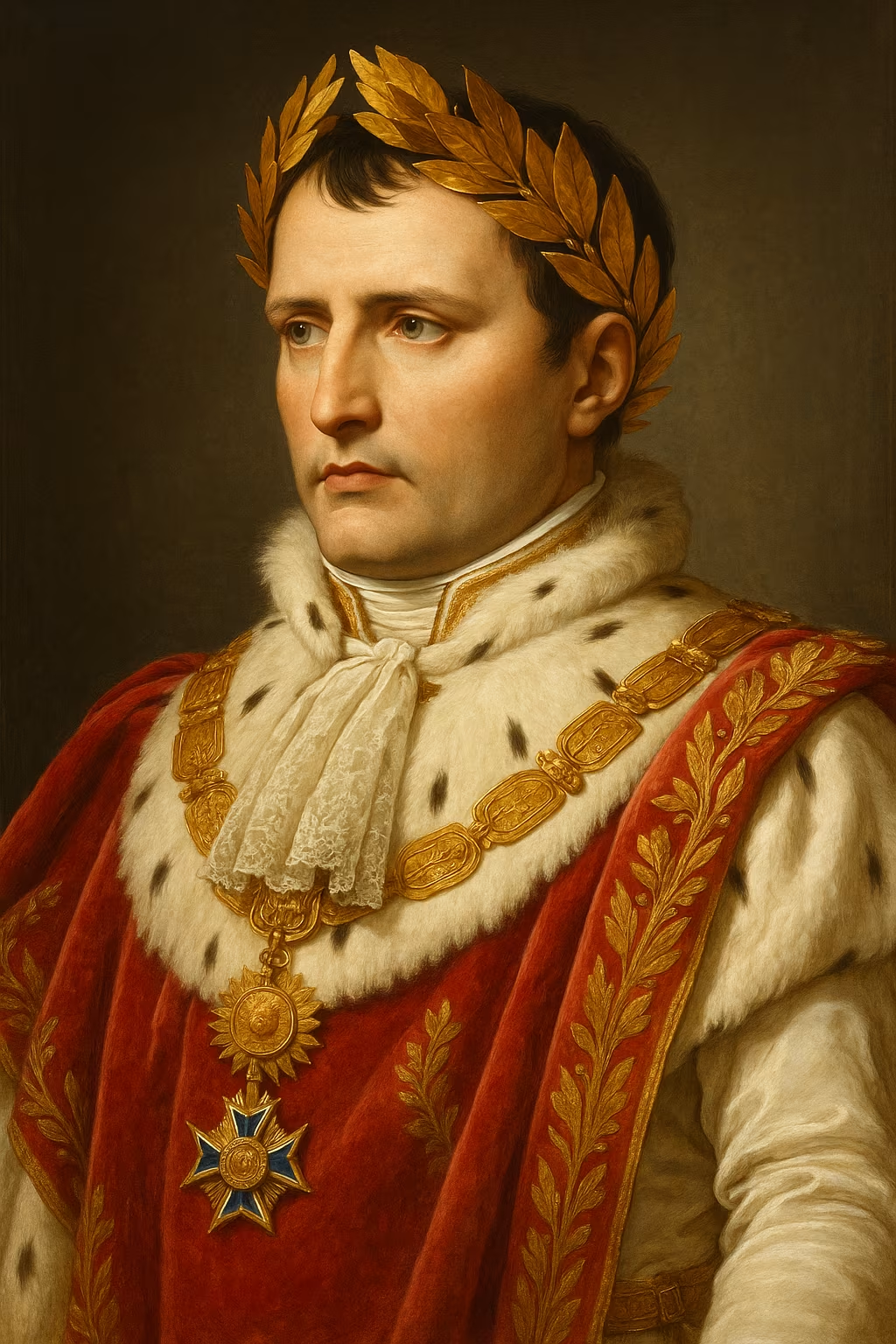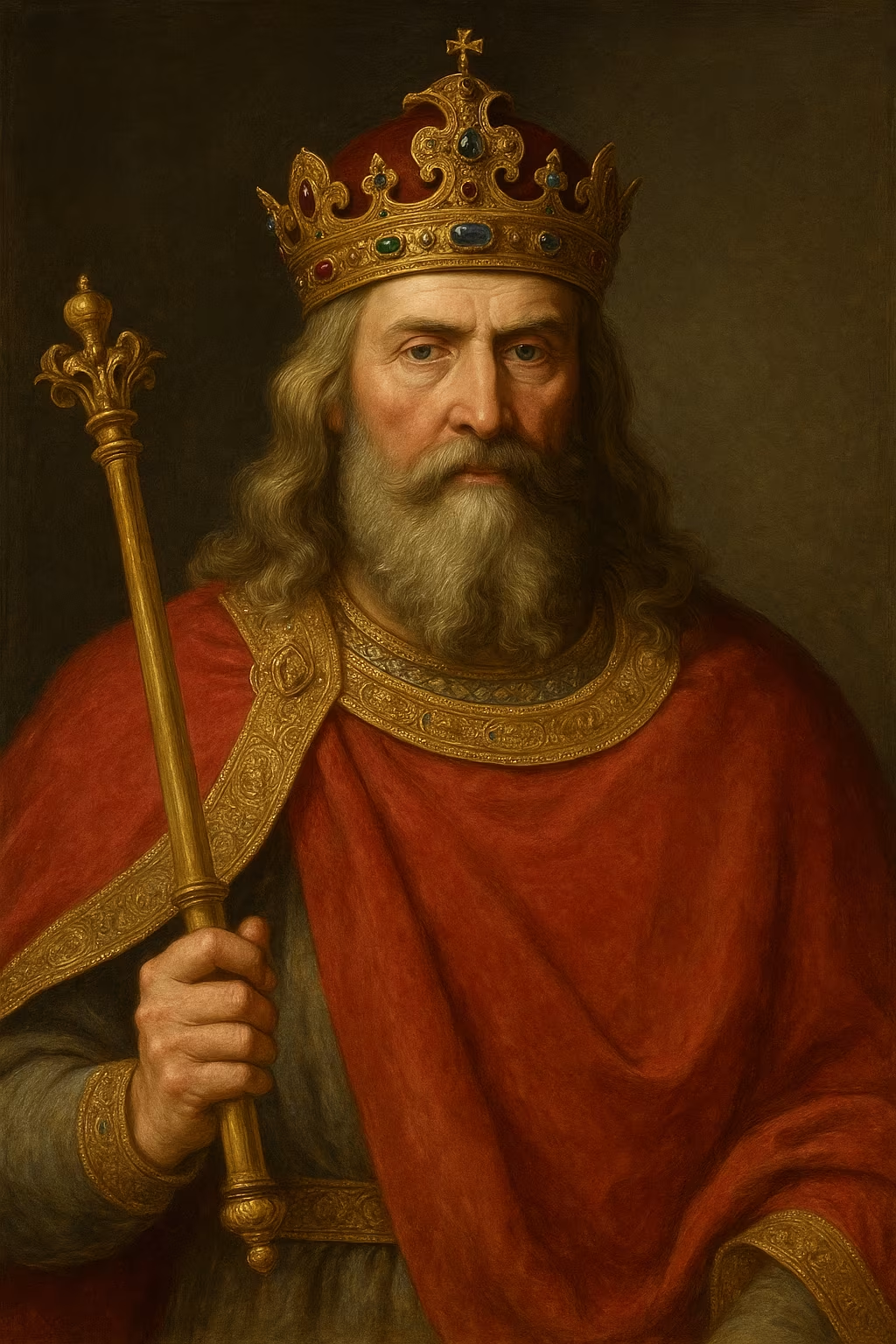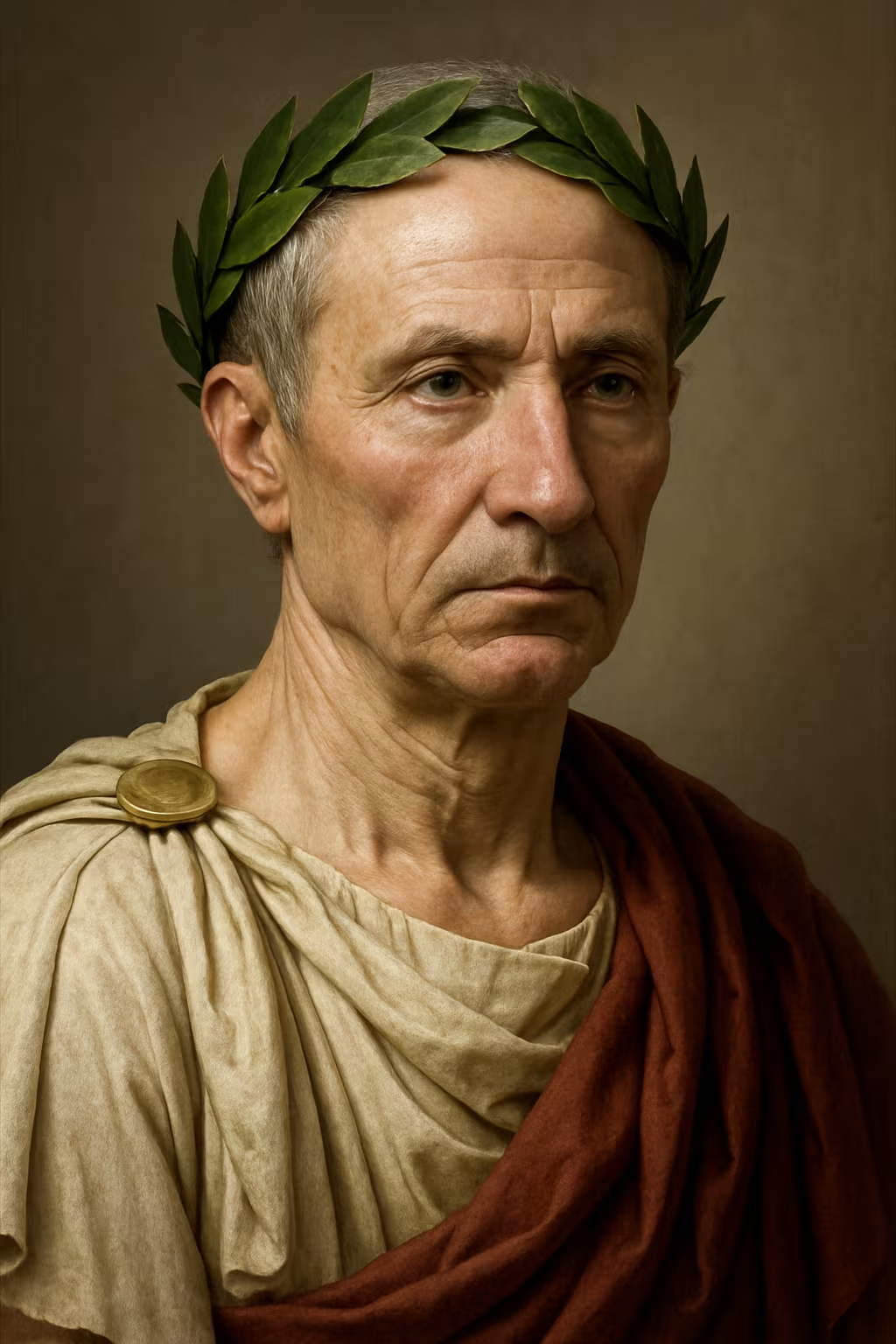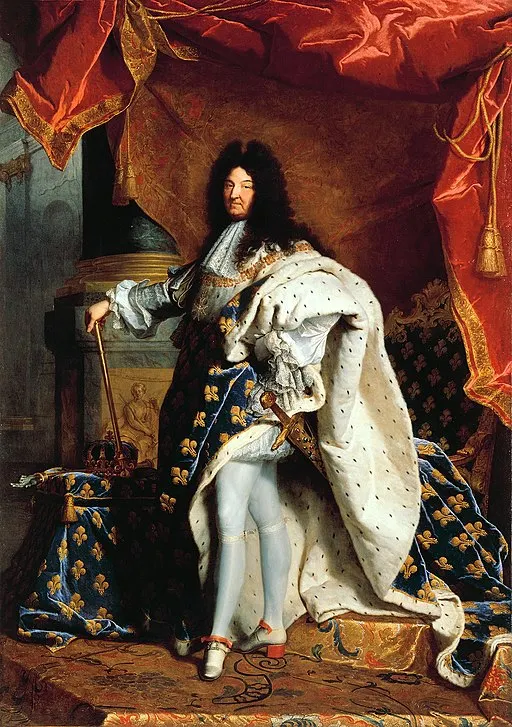Napoleon Bonaparte (1769 – 1821)
Quick Summary
Napoleon Bonaparte (1769 – 1821) was a emperor of the french and major figure in history. Born in Ajaccio, Corsica, Napoleon Bonaparte left a lasting impact through Victory of Austerlitz (December 2, 1805).

Birth
August 15, 1769 Ajaccio, Corsica
Death
May 5, 1821 Longwood, Saint Helena
Nationality
French
Occupations
Complete Biography
Early Life
Napoleon Bonaparte was born on August 15, 1769, in Ajaccio, Corsica, just a year after the island was annexed by France. He came from a family of minor Italian nobility: his father, Carlo Buonaparte, was a lawyer and representative of Corsican nobility to Louis XVI, while his mother, Letizia Ramolino, was a strict and influential figure in his upbringing. Sent to mainland France at an early age, Napoleon attended the military school of Brienne (1779–1784), excelling in mathematics and strategy, though often mocked for his Corsican accent and modest origins. In 1785, he graduated from the École Militaire in Paris as a second lieutenant of artillery and was posted to Valence. A passionate reader of history and philosophy (Plutarch, Rousseau), he nurtured an ambitious vision of his destiny.
Political Rise
The French Revolution opened new paths for Napoleon. In 1793, at the siege of Toulon, he devised an artillery plan that forced the British fleet to withdraw, earning him rapid promotion to brigadier general at age 24. In 1795, he defended the Convention against royalist insurgents on 13 Vendémiaire in Paris, further boosting his reputation. His Italian campaign (1796–1797) was dazzling: through bold maneuvers, he defeated Austrians and Piedmontese at Arcole and Rivoli, imposed the Treaty of Campo Formio, and established himself as a military genius. In 1798, he launched the Egyptian campaign to strike Britain’s route to India: the victory of the Pyramids astonished Europe, but the French fleet was destroyed at Aboukir. Returning to France amid political turmoil, he seized power through the coup of 18 Brumaire (November 9, 1799), ending the Directory. As First Consul, he concentrated executive power and began rebuilding the French state.
Consulate
Between 1799 and 1804, Napoleon transformed France with major reforms. He founded the Bank of France (1800), introduced the franc, signed the Concordat with the Pope (1801), established prefects in departments, and reorganized secondary education with lycées. His Civil Code (1804), or Napoleonic Code, unified French law and enshrined principles of equality before the law and property rights. Militarily, the victory at Marengo (1800) consolidated his authority. In 1802, a plebiscite made him Consul for Life, paving the way for the proclamation of the Empire.
Empire
On December 2, 1804, Napoleon crowned himself Emperor of the French at Notre-Dame de Paris in a ceremony attended by Pope Pius VII. He reigned as both a reformer and a conqueror. Victories at Austerlitz (1805), Jena (1806), Friedland (1807), and Wagram (1809) expanded French dominance across Europe. His relatives were placed on European thrones—Joseph in Spain, Louis in Holland, Jérôme in Westphalia. Yet his Continental System, designed to blockade Britain, proved difficult to enforce. In 1810, he married Marie-Louise of Austria, strengthening dynastic ties with the Habsburgs, and in 1811 had a son, the King of Rome. At its height, his empire stretched from Iberia to Poland, reshaping European borders.
Decline
From 1808 onward, Spain became a quagmire: guerrilla warfare drained French resources, while Wellington’s British forces inflicted repeated defeats. In 1812, Napoleon launched his fateful invasion of Russia. After the bloody battle of Borodino (Moskova), he entered Moscow, which was set ablaze by the Russians. Forced to retreat in the harsh winter, the Grande Armée was decimated by cold, hunger, and constant attacks. In 1813, at Leipzig—the Battle of the Nations—Napoleon suffered a decisive defeat. In April 1814, facing invasion of France, he abdicated and was exiled to Elba. Returning in March 1815 for the Hundred Days, he rallied the army and regained power, only to be finally crushed at Waterloo on June 18, 1815, by Wellington and Blücher.
Exile And Death
After Waterloo, Napoleon abdicated again and was deported by the British to the remote island of Saint Helena in the South Atlantic. At Longwood House, under harsh conditions and close surveillance, he dictated his memoirs, immortalized in Las Cases’ 'Mémorial de Sainte-Hélène,' shaping his legend as a hero and martyr of history. Weakened by illness, likely stomach cancer, he died on May 5, 1821, at the age of 51. In 1840, his remains were repatriated to France during the 'retour des cendres' and solemnly interred at Les Invalides in Paris, where they remain to this day.
Achievements and Legacy
Major Achievements
- Victory of Austerlitz (December 2, 1805)
- Civil Code (March 21, 1804)
- Creation of the Bank of France (January 18, 1800)
- Concordat with the Catholic Church (July 15, 1801)
- Organization of Lycées (1802)
- Administrative and Judicial Reorganization
Historical Legacy
Napoleon left an immense legacy: modern French institutions, unified legal system (Civil Code), military legends and debates about his role as architect or gravedigger of freedom. His memory remains at the heart of French and European history.
Detailed Timeline
Major Events
Birth
August 15, 1769 in Ajaccio
Siege of Toulon
Republican victory, December 1793
Italian Campaign
April 1796 – April 1797
Coup of 18 Brumaire
November 9, 1799
Battle of Marengo
June 14, 1800
Imperial Coronation
December 2, 1804 at Notre-Dame in Paris
Austerlitz
December 2, 1805, decisive victory
Russian Campaign
June 24 – December 14, 1812
Waterloo
June 18, 1815, final defeat
Death
May 5, 1821 at Longwood, Saint Helena
Geographic Timeline
Famous Quotes
« Impossible is not French. »
« Soldiers, from the top of these pyramids, forty centuries look down upon you. »
« My true glory is not to have won forty battles... What will live eternally is my Civil Code. »
External Links
Frequently Asked Questions
When was Napoleon born and when did he die?
He was born on August 15, 1769 in Ajaccio, Corsica, and died on May 5, 1821 in Longwood, Saint Helena.
What was Napoleon’s greatest victory?
The Battle of Austerlitz on December 2, 1805, often called the Battle of the Three Emperors.
What reforms did Napoleon establish?
He introduced the Napoleonic Code, founded the Bank of France, reorganized education, and modernized administration.
Why was he exiled twice?
He was first exiled to the island of Elba in 1814 after his abdication, then definitively to Saint Helena in 1815 after the defeat at Waterloo.
Where is Napoleon buried?
He rests at the Invalides in Paris since 1840, after the 'return of the ashes'.
Sources and Bibliography
Primary Sources
- Mémorial de Sainte-Hélène (Las Cases)
Secondary Sources
- Chandler D., The Campaigns of Napoleon ISBN: 9780025236608
- Tulard J., Napoléon ou le mythe du sauveur ISBN: 9782262035364
External References
See Also
Related Figures
Specialized Sites
Batailles de France
Discover battles related to this figure
Dynasties Legacy
Coming soonExplore royal and noble lineages
Timeline France
Coming soonVisualize events on the chronological timeline


